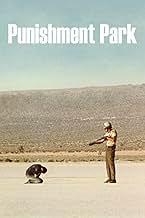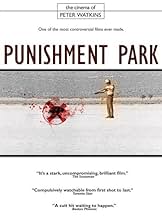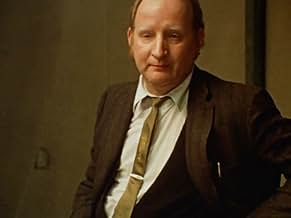You can't watch a film like Peter Watkins' "Privilege," a story of the exploitation of a pop music performer by big business, the state, and even organized religion, without thinking of creatively degenerate commodities like Michael Jackson or Britney Spears, who hawk corporate giants like Pepsi or some other poison for money. Or any number of entertainers, in music or movies, who become tools of political parties or commercial religious interests like Scientology and Kabbalah. A film like Privilege must have seemed almost like science fiction when released in 1967, so fantastic was its premise. Today we tend to take celebrity endorsements for granted, giving little thought to its more alarming implications. Watkins' vision has not only become reality, we tacitly accept this reality as "normal."
Now consider Punishment Park. As Privilege challenges the viewer to examine what is being sold to us, and why, Punishment Park demands that we reckon with what is being taken from us, and why.
Heaven help America, and for that matter the world, if contemporary politicians get their hands on this film. It is already so close to reality, that in viewing it recently, I experienced a genuine, nauseating feeling of anxiety.
Watkins again skillfully employs a documentary-style narrative. Whereas in Privilege some rough edges to this technique were apparent, in Punishment Park it has been honed to sharp, seamless perfection. The sense of realism is enhanced by disarmingly unpretentious, economical, believable portrayals by the entire cast. This is the kind of acting Hollywood has completely turned its back on, to its detriment, in favor of cosmetically perfect image projections. The cast has first-rate material to work with in Watkins' screenplay.
Many cinematic visionaries have tried to shake the viewer out of their complacent, false sense of security. No one has ever achieved this result with such stark and chilling accuracy as Peter Watkins does here.
"What seems quite clear now, is that instead of trying to bring the estranged and excluded Americans, such as these people, back into the national community, the Administration has chosen to accept and exploit the present division within the country, and to side with what it considers is the majority. Instead of the politics of reconciliation, it has chosen the politics of polarization."
To paraphrase one of the characters, we don't have to call them pigs because they know what they are. Better than we do.

































